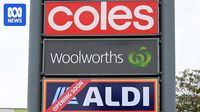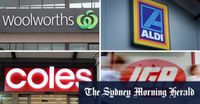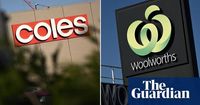The Australian Competition and Consumer Commission (ACCC) has released a pivotal report revealing that Woolworths and Coles are among the most profitable supermarket retailers in the world, even as they remain entangled in ongoing debates around price gouging. Released on March 21, 2025, the findings stemmed from a year-long inquiry that struggled to determine definitively whether these retail giants engaged in unethical pricing practices.
The 441-page report unveiled that Australia’s supermarket sector, marked by frequent allegations of profiteering particularly during the pandemic and subsequent cost-of-living crisis, is not just highly profitable but operates within a complicated market structure. ACCC deputy chair Mick Keogh expressed the outcome succinctly: "While input and operational costs have increased over this time, Coles and Woolworths have maintained or increased their product margins." This statement raises eyebrows regarding the substantial profits collected by these corporations, despite economic hardships faced by consumers.
Specifics from the report indicate that Woolworths recorded a significant profit of $739 million in the first half of the current fiscal year, while Coles followed closely with a $576 million profit during the same timeframe. These figures are impressive when juxtaposed against their collective grip on the grocery market—Woolworths alone comprises 38% of supermarket grocery sales in Australia, and combined, Woolworths and Coles dominate around two-thirds of the market.
However, the inquiry fell short of confirming whether these supermarkets are guilty of price gouging, a claim that has plagued them during recent economically turbulent times. Keogh stated, "It's very difficult to get to the bottom of that. The profitability figures do give you some very broad picture of what's happening, but the issue of price gouging isn't one we were able to engage in too closely." Essentially, despite surging prices, the ACCC clarified that high profit margins are not illegal under the Competition and Consumer Act. This report thus paints a complex picture of profitability under democratic scrutiny.
Critics of the current supermarket landscape argue that the dominance of Woolworths and Coles creates an oligopolistic environment—one where competition is limited despite claims from the supermarkets themselves that they face fierce rivals. Coles has iterated that it competes vigorously with thousands of specialty retailers and emerging competitors like Amazon and Chemist Warehouse, citing a commitment to industry-led solutions. In their defense, they emphasized the notion of rigorous market competition, a sentiment echoed by Woolworths' CEO Amanda Bardwell, who claimed, "Our experience, in store and online, is that the Australian grocery sector is very competitive."
Yet, the ACCC’s report does not wholly support this view, suggesting that the market's competition is rather limited. The inquiry found that Aldi’s market share is relatively small at 9%, and Metcash controls merely 7%, indicating that despite their presence, these alternatives struggle to challenge the dominance of Woolworths and Coles effectively.
This revelation coincides with criticisms from various political factions, including the Coalition and the Greens, who are calling for enhanced regulatory powers to potentially break up major supermarket chains. Shadow treasurer Angus Taylor was vocal about the need for debate on supermarket competition laws, arguing it is unjust that the current situation allows such powerful entities to operate with what some describe as impunity. This sentiment is supported by Nick McKim of the Greens, who insisted that without stricter regulations, rampant price hiking will persist as the duopoly continues to thrive.
Moreover, the ACCC made 20 recommendations aimed at improving transparency for consumers and suppliers, emphasizing clearer pricing practices and the necessity for supermarkets to disclose information about discount promotions. They also spotlighted the practices known as shrinkflation—where product sizes shrink without a corresponding drop in price—as an area requiring particular scrutiny. As the report suggests, the consequences of unclear pricing strategies are detrimental to consumers who struggle to discern the real price of items amidst ongoing promotional gimmicks.
Despite these findings, both Woolworths and Coles maintain their stance that they are well-positioned to serve their consumers. Coles stated that they are reviewing the recommendations thoroughly while continuing to enhance consumer pricing clarity. On the other hand, Woolworths has reported share price increases since the inquiry, signaling investor confidence amid these ongoing debates.
The political divide on how to handle supermarket regulation has left the door open for potential changes, but no immediate action is anticipated. The government has committed $2.9 million in its upcoming budget to assist suppliers dealing with the power of these supermarket giants; however, concrete legislative moves remain unclear.
The future trajectory of the supermarket sector in Australia hinges significantly on how the government responds to both the ACCC's recommendations and the public's growing concerns over price transparency. As consumer sensitivity rises amid an ongoing economic challenge, whether or not supermarkets like Woolworths and Coles can maintain their dominance without intervention will be a key narrative to watch.







